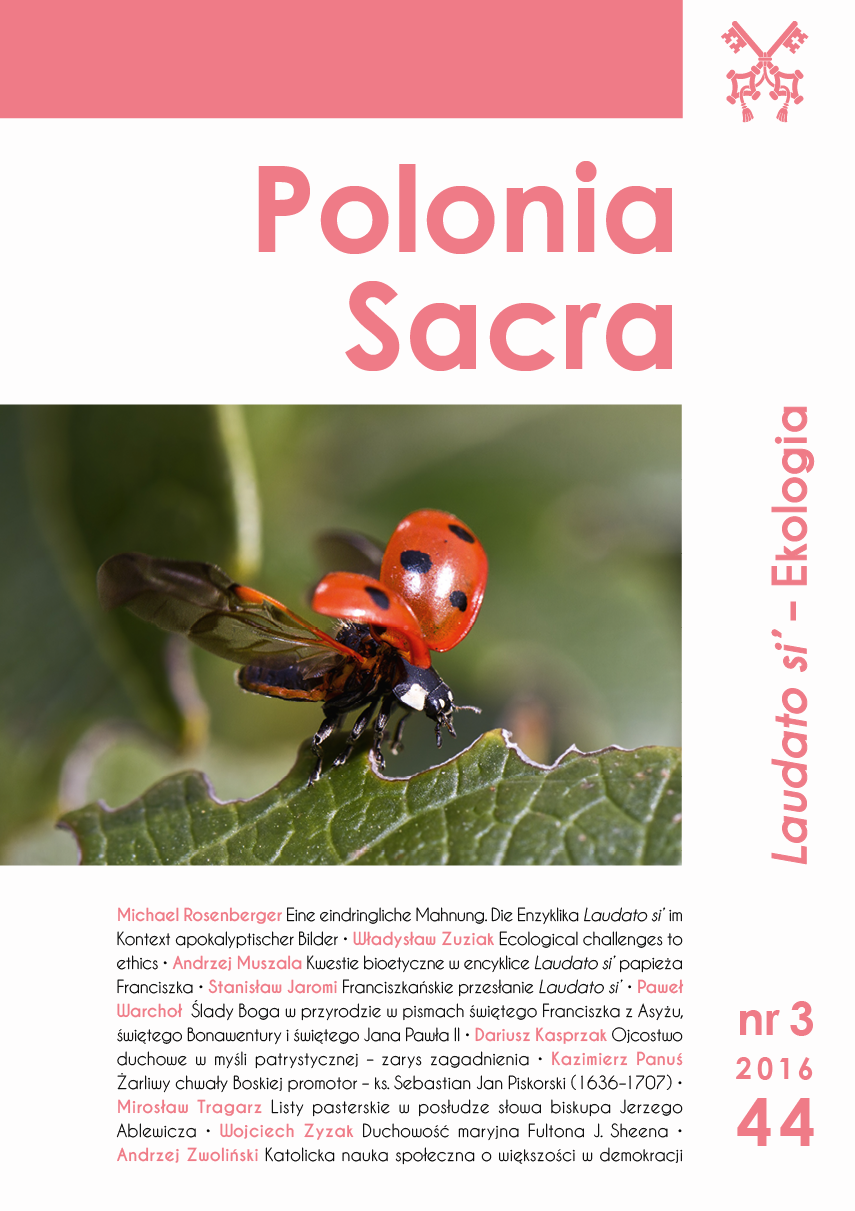Ojcostwo duchowe w myśli patrystycznej – zarys zagadnienia
Spiritual Paternity in Patristic Literature – an Outline
Author(s): Dariusz KasprzakSubject(s): Christian Theology and Religion, Theology and Religion, Systematic Theology
Published by: Wydawnictwo Naukowe Uniwersytetu Papieskiego Jana Pawła II w Krakowie
Keywords: Spiritual paternity; spiritual father; patrology; Desert Fathers
Summary/Abstract: The practical description of spiritual leaderships is not mandated as an institution in Sacred Scripture. The Christianity of the first three centuries presents us rather the spiritual relationship between the master and his disciple. Spiritual paternity as a spiritual discipline started in the 4th century within the Egyptian coenobitic communities and anchorites. It resulted in new terms such as: father – Abba, spiritual father, teacher, senior, spiritual master. The spiritual paternity of the Desert Fathers was a personalized spiritual exercise, which was to seek the way of salvation. The ultimate goal was to reach spiritual maturity, which manifested itself in the soul’s recognition, contemplation, inner peace and apatheia. The Father of the Desert used to share their own spiritual experiences with their disciples rather than to give them advice or hints or intellectual lessons. The relationship of spiritual paternity was built on the pattern: father and disciple. Every advice was supported by the prayer for the spiritual children and the example of the monastic life. The spiritual paternity relayed on cordial relations, sharing prayer and community life, the practice of self revelation and soul recognition and the transitions their own personal experiences. The spiritual father was gentle, friendly and prayerful. Such a practice of spiritual fraternity was neither the archaic form of psychological therapy nor the spiritual direction. Spiritual father begetted his sons to God. His aim was to help his spiritual children in their own spiritual development in order to attain the ultimate salvation.
Journal: Polonia Sacra
- Issue Year: 20/2016
- Issue No: 3
- Page Range: 101-122
- Page Count: 22
- Language: Polish

